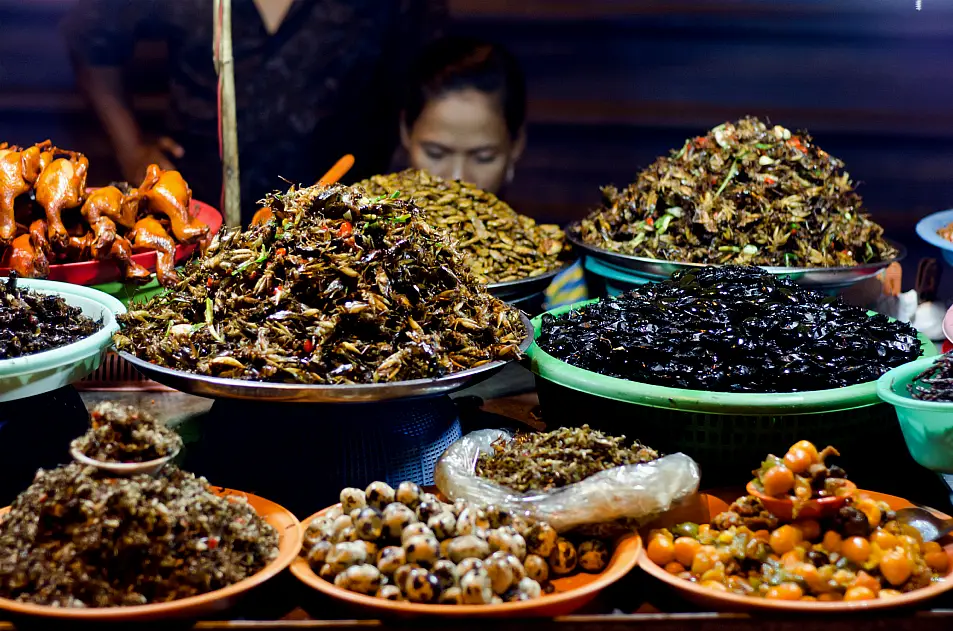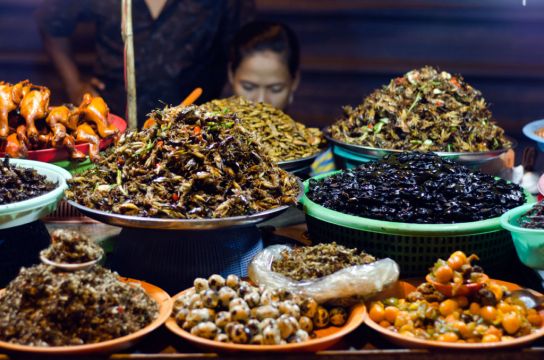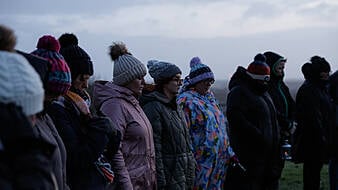Former Ukip leader Nigel Farage and YouTube star Nella Rose were the first celebrities to complete the infamous Bushtucker trial on ITV’s I’m A Celebrity… Get Me Out Of Here!
Voted by members of the public to eat at ‘Jungle Pizzeria’, the pair were served a variety of dishes, including a ‘Margar-teat-a’ – a pizza with a creamy cheese base, the nipple of a cow and sheep and cow udders – and others which were topped with crickets, scorpions and large spiders.
Others were topped with a large caterpillar, four types of animal penis, a pig’s anus and a very long black worm (which is when Rose tapped out of the trial, after already eating four out of her five pizza slices).
But what happens to your body when you eat insects and creepy crawlies? We asked a nutritionist to explain the positive and negative effects they can have on our bodies and the wider environment.
AdvertisementView this post on Instagram
Nutritional value
According to nutritionist Dale Pinnock, who is also known as The Medicinal Chef, there are over 2,000 different insects which are safe to eat.
“Insects can be a very big source of nutrition,” said Pinnock. “Though the nutrition may vary, protein is at the top of the list. You’ll find about 50-80% of protein in them.
“It’s why we are seeing more people create protein powders from insects to increase the nutritional value of meals. These protein powders usually have no flavour, but great when you want to eat something interesting. There is actually well known insect powders on the market, for example Eat Grub’s cricket powder.”
Fibre is another form of nutrients Pinnock said creepy crawlies can provide.
“People think of whole grains when they hear fibre, but because of the exoskeleton – the skeleton of insects are outside of their bodies, [and] what gives them their crunch – insects have, it makes for a really good fibre source.

“The fibre found in insects are made of chitin – the main component of this exoskeleton. But despite it being good for us, it can be difficult to break down, because it’s a complex fibre.”
Whilst on a trip to Mexico City, Pinnock tasted some insects and said: “I’ve eaten crickets before, which are high in fibre. It’s a hard flavour to describe but they taste slightly sour and tangy with a crunch. I even had some sprinkled on top of guacamole.
“Meanwhile grubs and larvae have a high fat content with omega 3,” Pinnock said.
“It’s all about treating insects like superfoods. They are high in B12 and vitamin E, but don’t really contain many anti-oxidants that you find in plants.
“You’ll find an amazing source of collagen in animal penis,” he added.
It’s sustainable
Making the decision to diversify your diet, will only be accompanied with positive benefits.

“Insects have the potential of becoming a sustainable food source for the mass market, especially since there is a lot of debate about how long it takes to farm and produce meat, in comparison. They could save us a lot of time,”
said Pinnock.
Bloating and indigestion
“There are no real risks in eating most insects but the biggest barrier is that initial resistance and gag. Though there are some which are certainly highly poisonous,” said Pinnock.
“And due to the fibre in the exoskeleton, insects can’t be broken down as easily, which can cause a bit of bloating and high indigestion, just like when you have nuts, seeds and pulses.
“It just all depends on how brave you are. Could you eat fried crickets covered in green curry? If you are brave crack on but for most people, it would be quite difficult.”
Vassiliki Sinopoulou, senior research assistant in the School of Medicine and Dentistry at the University of Central Lancashire (UCLan) agreed.
“Despite what we may think in western societies, it’s not rare to eat insects. Two billion people in the world are estimated to use insects in their diet,” she said.
“Potential harms of eating insects are not different from other foods. Of course, appropriate food safety methods should be followed for their rearing, harvesting, processing, and storage, just like any other food.
“Some people might be allergic, or some species might be poisonous. As is well known, the disgust factor is a quite large mind block to overcome for people that follow western-style diets.”







